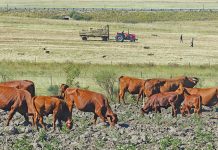South Africa’s 20-odd fresh produce markets play an essential role in distributing fresh fruit and vegetables to the nation – a role that’s not appreciated enough by farmers and political leaders. Most people don’t understand the dynamics within a market and the functions of the primary roleplayers. The owner is responsible for providing all the facilities of a working market, such as a sales hall, coldrooms, ripening rooms, and many others.
The market manager and staff have an important responsibility to ensure a level playing field for all participants, helped and guided by laws and rules. They also need to ensure the market is an attractive option to buyers and farmers.The buyers bring their business to the market and are therefore customers. This makes them extremely important, as in “the customer is king”.
Market agents represent farmers on the market. They don’t buy the products, but sell them on the farmers’ behalf. They’re responsible for keeping both farmers and buyers satisfied, but there’s one small problem – the farmer always wants the highest price while the buyer wants the lowest. It’s the agent’s responsibility to walk the thin line between both clients – I usually call it “mission impossible”. The farmer is the one who supplies the fresh produce, and farmers retain ownership of the products until they’re paid for.
This means that neither the market agent nor the Market Authority have the right to do as they please with that produce. They have to remain within the framework of the law, and there are clear legal guidelines to help them.Take the case of produce that’s been condemned as unfit for human consumption and must be dumped. Who’s responsible? Does the farmer travel hundreds or thousands of kilometres to collect a few left-over boxes of unfit produce? Or leave it to the market agent to dispose of them? Technically, farmers should remove their own products, but it’s not practical, so the market agent advises the Market Authority and they remove the produce to be dumped.
However, there is a cost implication for the market. In the case of the big guys this can run into a few millions, and they don’t charge for this service.Let’s take a hypothetical situation. The market disposes of the unfit products via a third party – perhaps for a small fee. Now what? Legally, the produce still belongs to the farmer. Do they “cut him into the deal”, do they simply go ahead, or do they first seek his approval?
I presume the legal answer is that they should first seek the farmer’s approval, but it would be impossible to get written approval from thousands of farmers all over South Africa every time the market has to dispose of unfit produce. My non-legal answer? Go ahead and do it – you’re still saving the farmer money. – Mike Cordes (e-mail [email protected]). |fw








